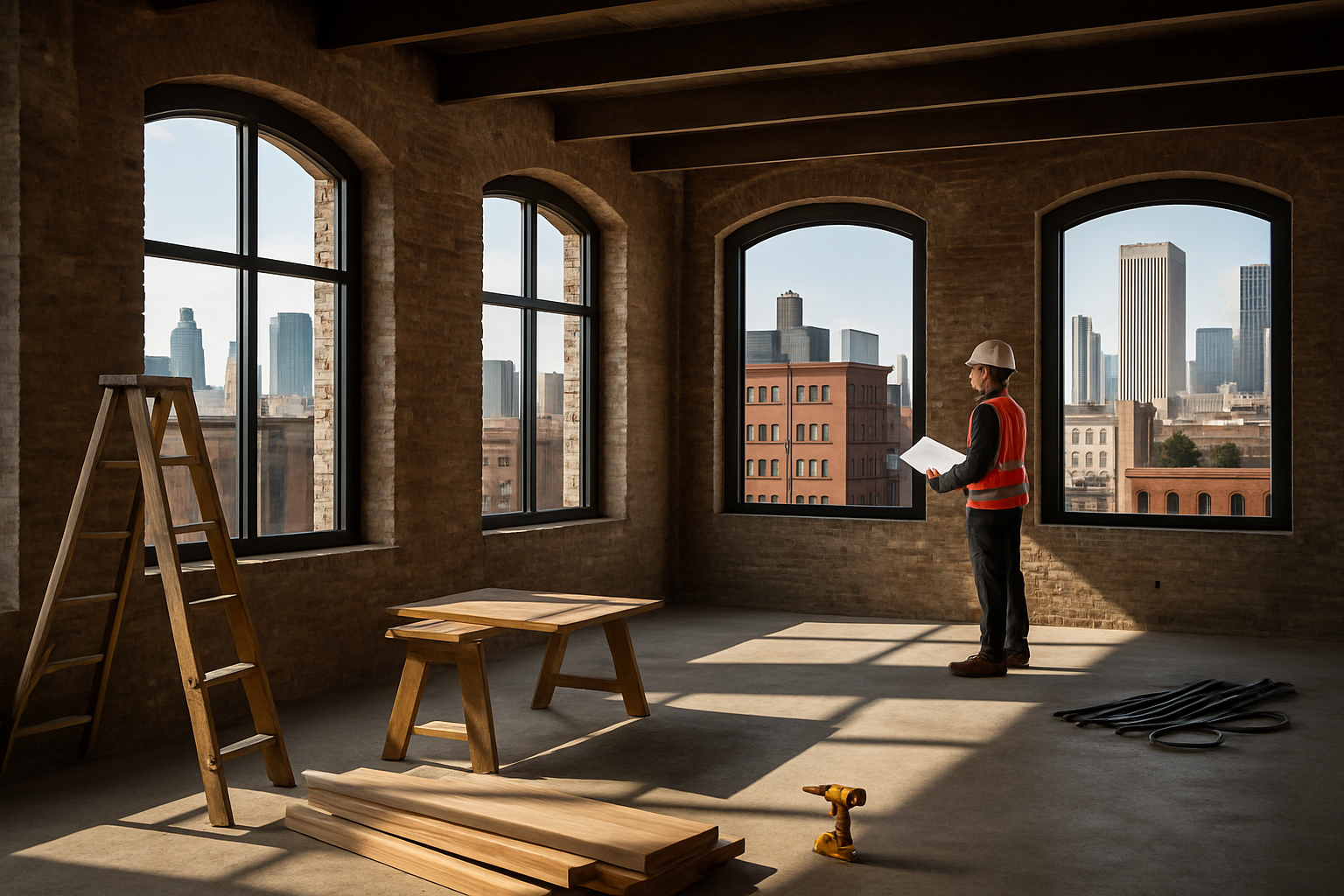How to Get a Good Job in the Construction Industry
The construction sector offers excellent job opportunities with strong income potential. To land a good position, you need to know what qualifications are valued, what documents are required, and how to stand out in the hiring process. This article will help you get prepared and confident.

What Companies Expect from New Hires
Construction employers prioritize reliability, safety consciousness, and willingness to learn above all else. They seek candidates who demonstrate strong work ethic, punctuality, and the ability to work effectively in team environments. Physical fitness and stamina are essential, as construction work often involves heavy lifting, extended standing, and working in various weather conditions.
Safety awareness ranks as a top priority for construction companies. Employers expect new hires to follow safety protocols without compromise and actively contribute to maintaining safe work environments. Basic technical knowledge, even at entry level, shows initiative and genuine interest in the field. Many companies also value candidates who show problem-solving abilities and adaptability, as construction projects frequently require quick thinking and flexibility when unexpected challenges arise.
Required Documents and Qualifications
Essential documentation varies by role and location, but certain requirements remain consistent across the industry. A valid driver’s license is typically mandatory, as construction workers often travel between job sites. Social Security card, birth certificate or passport, and proof of eligibility to work are standard requirements for all positions.
Safety certifications significantly strengthen applications. OSHA 10-hour or 30-hour certification demonstrates commitment to workplace safety and may be required for certain positions. First aid and CPR certifications are valuable additions that many employers appreciate. For specialized roles, trade-specific licenses or certifications become necessary - electricians need electrical licenses, welders require welding certifications, and heavy equipment operators must have appropriate equipment certifications.
Educational requirements vary widely. While many entry-level positions accept high school diplomas or equivalents, technical school training, apprenticeship completion, or associate degrees in construction-related fields provide competitive advantages and open doors to higher-paying positions.
Most In-Demand and High-Paying Roles
The construction industry offers diverse career paths with varying income potential. Project managers represent the highest-earning positions, typically requiring several years of experience and often bachelor’s degrees in construction management or related fields. These professionals oversee entire projects, coordinate teams, and manage budgets.
Skilled trades consistently show strong demand and excellent earning potential. Electricians, plumbers, and HVAC technicians command premium wages due to specialized knowledge requirements and licensing needs. Heavy equipment operators also earn competitive salaries, particularly those certified on multiple machine types.
Construction superintendents, who supervise daily operations on job sites, earn substantial incomes while requiring extensive field experience. Estimators, responsible for calculating project costs and materials, combine technical knowledge with analytical skills for well-compensated positions.
| Role | Average Annual Salary | Key Requirements |
|---|---|---|
| Project Manager | $85,000 - $120,000 | Bachelor’s degree, 5+ years experience |
| Electrician | $55,000 - $85,000 | Trade school, licensing, apprenticeship |
| Heavy Equipment Operator | $45,000 - $70,000 | Equipment certification, experience |
| Construction Superintendent | $70,000 - $100,000 | Extensive field experience, leadership skills |
| Plumber | $50,000 - $80,000 | Trade certification, licensing |
Prices, rates, or cost estimates mentioned in this article are based on the latest available information but may change over time. Independent research is advised before making financial decisions.
How to Pass Interviews Successfully
Construction interviews often combine traditional questions with practical assessments. Preparation should focus on demonstrating both technical competence and cultural fit. Research the company thoroughly, understanding their project types, safety record, and company values. This knowledge allows you to ask informed questions and show genuine interest.
Dress appropriately for the interview - business casual is typically suitable, though some companies may request you bring work clothes for practical demonstrations. Arrive early to show reliability and punctuality, qualities highly valued in construction.
Be prepared to discuss specific examples of problem-solving, teamwork, and handling challenging situations. Construction work involves constant collaboration, so employers want to see evidence of effective communication and conflict resolution skills. If you lack direct construction experience, draw examples from other industries that demonstrate transferable skills.
Safety knowledge should feature prominently in your responses. Discuss any safety training you’ve completed and emphasize your commitment to maintaining safe work environments. Many interviews include scenario-based questions about handling unsafe conditions or equipment malfunctions.
The construction industry rewards dedication, skill development, and safety consciousness. By understanding employer expectations, preparing proper documentation, targeting high-demand roles, and approaching interviews strategically, you can successfully launch or advance your construction career. Focus on continuous learning and safety excellence to build a rewarding long-term career in this dynamic industry.




